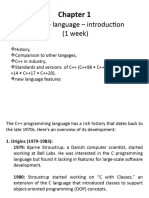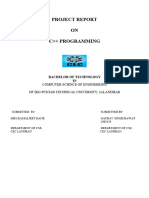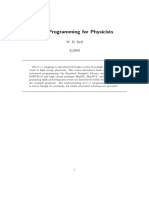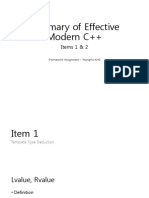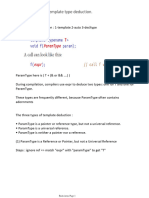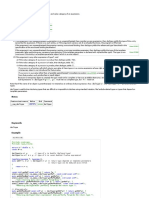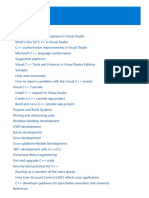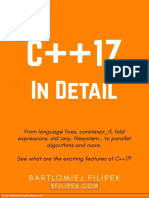0% found this document useful (0 votes)
13 views50 pagesLecture 01
This document outlines a C++ course lecture by Mike Spertus, covering the basics of C++ and its evolution from its inception in 1979 to the latest standards. It emphasizes the importance of understanding both the language and advanced programming techniques, while providing resources for further learning. The lecture also addresses common misconceptions about C++ and highlights its multiparadigm nature and lightweight abstractions.
Uploaded by
Tizi MartinCopyright
© © All Rights Reserved
We take content rights seriously. If you suspect this is your content, claim it here.
Available Formats
Download as PDF, TXT or read online on Scribd
0% found this document useful (0 votes)
13 views50 pagesLecture 01
This document outlines a C++ course lecture by Mike Spertus, covering the basics of C++ and its evolution from its inception in 1979 to the latest standards. It emphasizes the importance of understanding both the language and advanced programming techniques, while providing resources for further learning. The lecture also addresses common misconceptions about C++ and highlights its multiparadigm nature and lightweight abstractions.
Uploaded by
Tizi MartinCopyright
© © All Rights Reserved
We take content rights seriously. If you suspect this is your content, claim it here.
Available Formats
Download as PDF, TXT or read online on Scribd
/ 50












